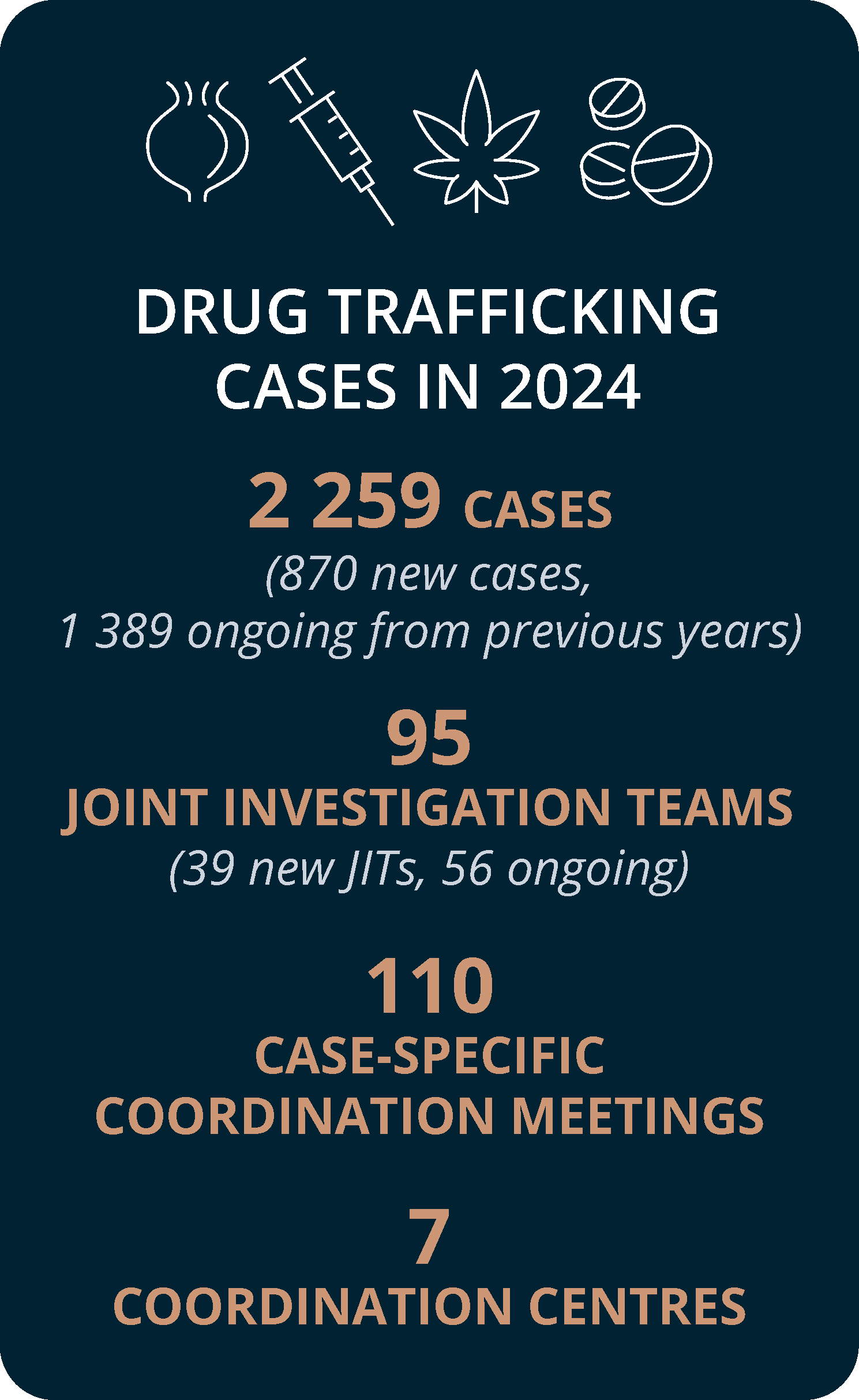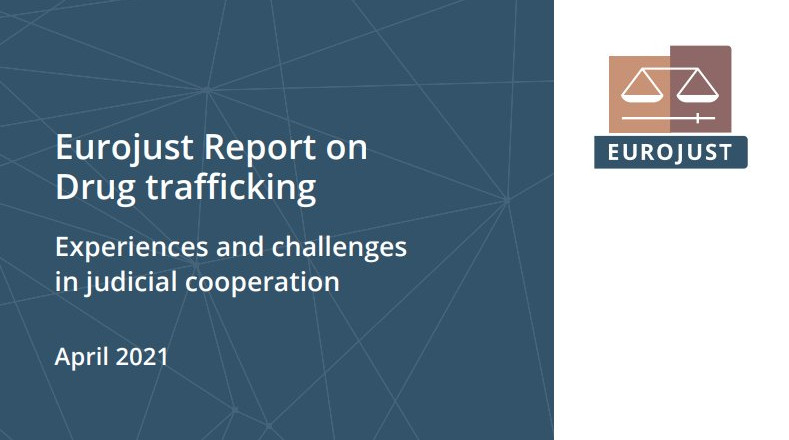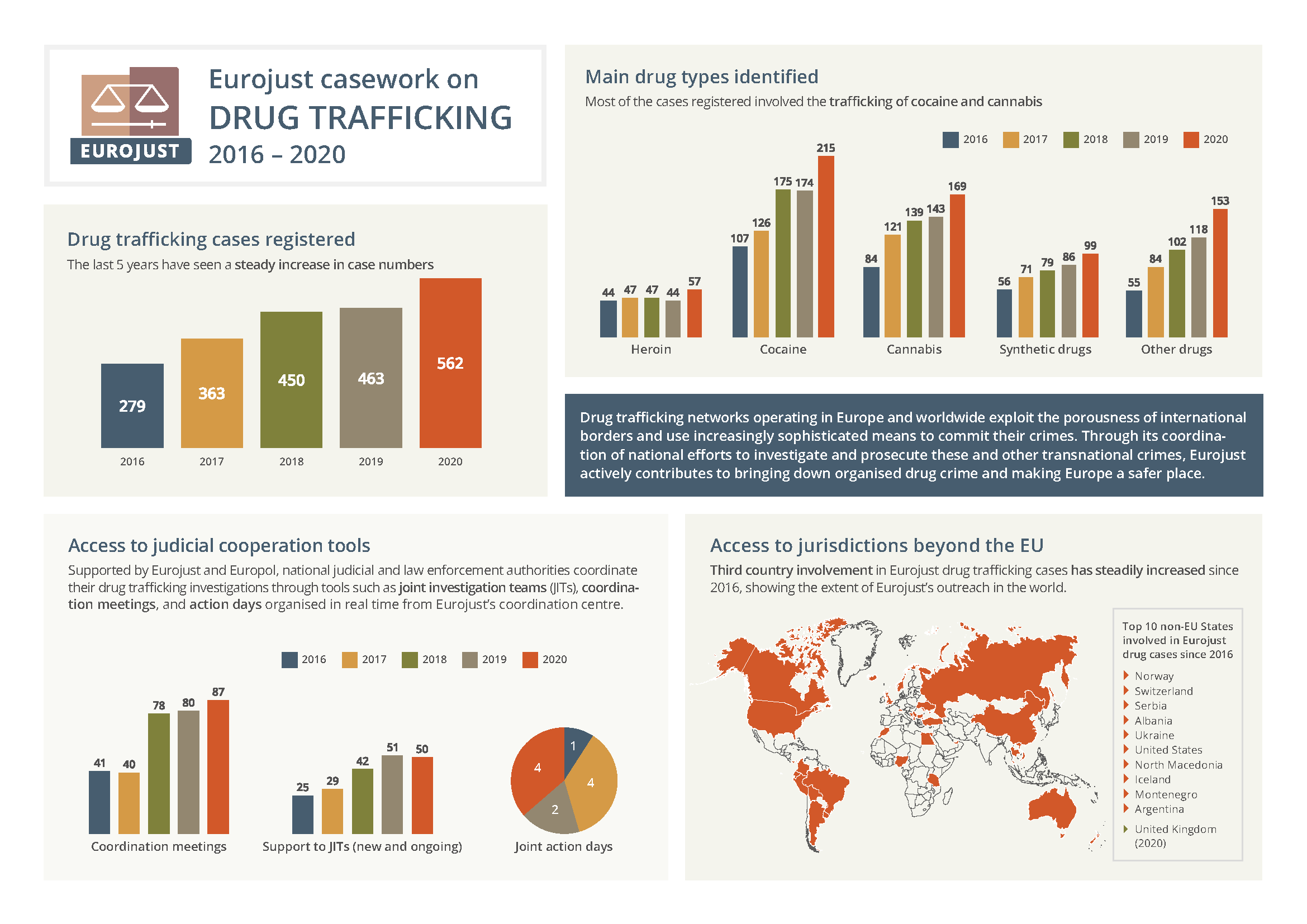
Drug trafficking is an especially complex form of criminal activity, frequently involving multiple States and often overlapping with other offences, including financial crime and cybercrime. The fight against drug trafficking relies on effective operational cooperation between law enforcement and judicial authorities.
Eurojust helps national authorities to dismantle transnational drug trafficking networks and bring perpetrators to justice. The Agency aims to enhance cross-border cooperation to identify the entire criminal network and provides advice on how to use European judicial instruments and avoid conflicts of jurisdiction. Eurojust also facilitates efforts to detect and seize illegal substances, for example in the framework of a joint investigation team (JIT), and can help investigators to gather and exchange crucial information and evidence.



